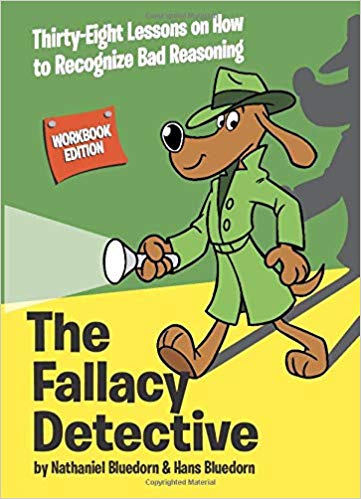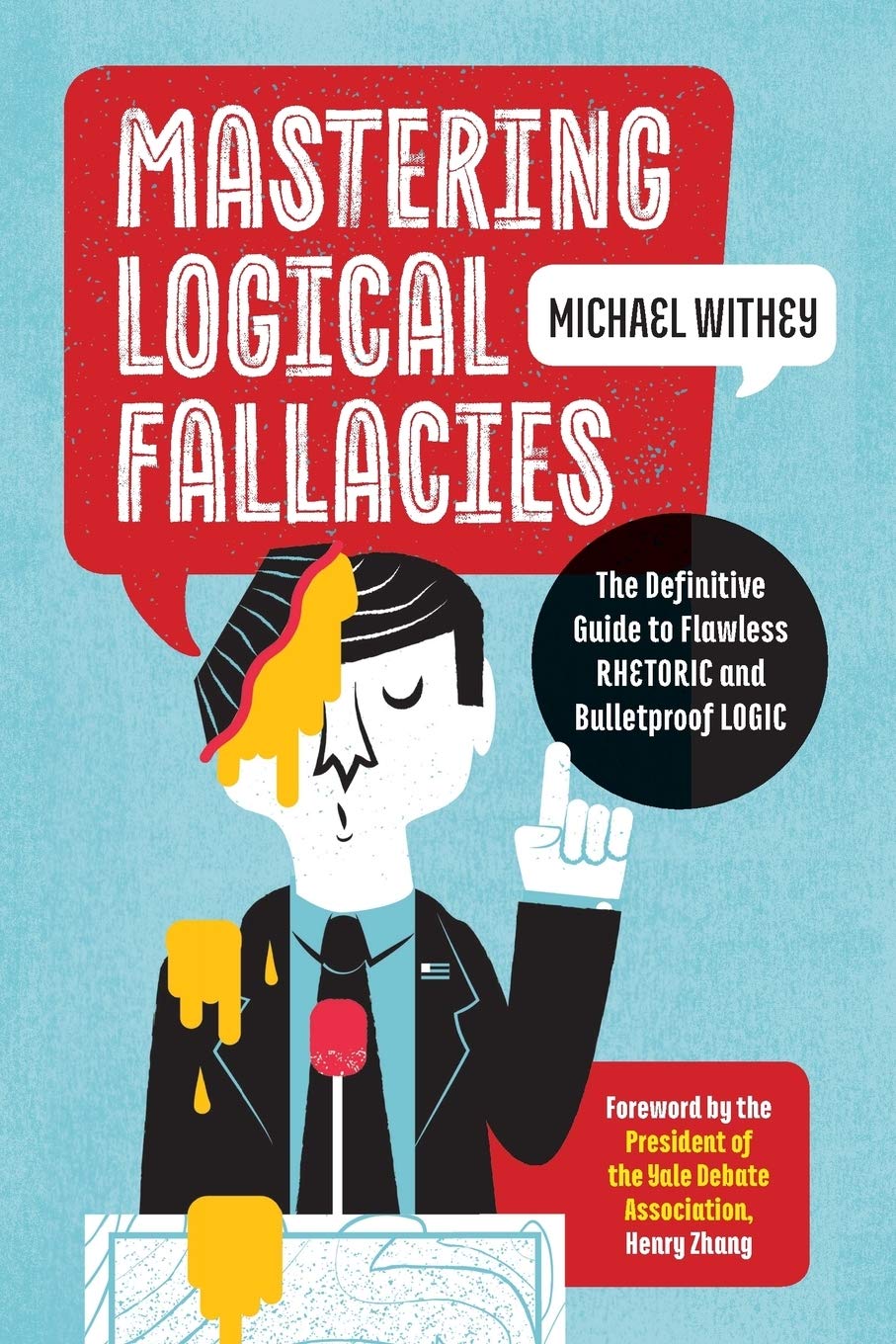
Etymological Fallacy
The etymological fallacy poses that a certain term's original meaning applies to its colloquial and modern understanding in current circumstances.
Example of Etymological Fallacy
- "Lucy, why do you call your children 'kids?' Don't you see how offensive it is to liken your children to immature little goats?"
The word for baby goats is 'kid'. The speaker is arguing that 'kid' can only refer to baby goats. - Calling someone (a straight person) who is happy and jolly 'gay' and insisting that only the old meaning of 'gay' is valid.
'Gay' used to mean 'happy'.

Books About Logical Fallacies
A few books to help you get a real handle on logical fallacies.





Etymological FallacyExtended Explanation
The Etymological Fallacy is a logical fallacy which occurs when someone assumes that the current meaning of a word must be the same as the original meaning of the word. This fallacy is based on the assumption that the current usage is directly descended from the original meaning, when in actuality, language changes over time, and words can take on new meanings or connotations as time passes. This fallacy can also occur when someone assumes that a word’s origin indicates its true meaning.
The etymological fallacy is based on the assumption that the original meaning of a word must be the same as its current meaning. This is false because language evolves over time, and words can take on new meanings or connotations as time passes. For example, the word “nice” used to mean “foolish” or “silly” but now means “pleasant” or “kind”. This is why it is important to consider the current meaning of a word and not just its origin when making an argument.
The etymological fallacy can also occur when someone assumes that a word’s origin indicates its true meaning. For example, the word “chivalry” is derived from the French word chevalier, which means “horseman”. However, the current meaning of the word has nothing to do with horses or horsemanship. It now refers to qualities such as honor, courtesy, and politeness.
The etymological fallacy is a logical fallacy because it assumes that the current meaning of a word must be the same as the original meaning of the word. This is false because language evolves over time and words can take on new meanings or connotations as time passes. It is also false because a word’s origin does not always indicate its true meaning. For this reason, it is important to consider the current meaning of a word and not just its origin when making an argument.